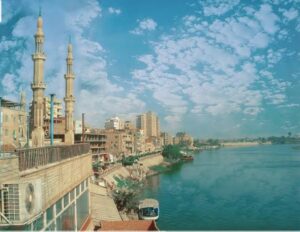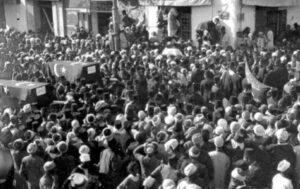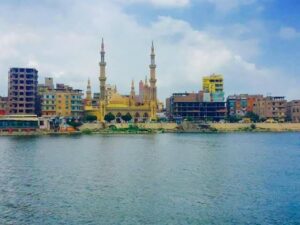In 1919, Egypt, the famous revolution of Egypt under the presidency of Saad Zaghloul had numerous consequences on the country, on top of which was the independency of Zefta, an Egyptian town in the Nile delta within the Gharbia governorate, to be “Zefta republic”.
The aforementioned consequences have been all set, when the formal British protectorate over Egypt was ended by the Unilateral Declaration of Egyptian Independence (UDI) on February 28, when Egypt became be an independent country, and got transformed from sultanate into a Kingdom.
When Saad Zaghloul and his companions were arrested on March 8, 1919, and later exiled, protests broke out across Egypt.
The protests in the town of Zefta took a different turn, as Youssef El-Gendy, a student at the Faculty of Law who led a group of young people including students, workers and peasants, announced secession from Egypt and the establishment of “Zefta Republic” on March 18, from the Mastoukli Cafe, whose owner was Greek, in the Cotton Exchange Square in the city.
The Mastoukli Cafe became the nascent republic’s leadership headquarters and El-Gendy and his comrades formed a revolutionary committee – the ruling municipal council – which decided to seize the police station in the city, so the crowds, armed with old guns, sticks, and axes, crawled towards the center.
The station warden, officer Ismail Hamad, who was sympathetic to the revolution, handed over the station to the revolutionaries. Later, the revolution issued the newspaper “Jumhuriya Zefta” (Zefta Republic) from a local printing house, whose owner was a young man named Muhammad Effendi Ajiba.

A security committee was formed, which included everyone who can hold a gun, led by officer Hamad, and people had responded to the call “Carrying the weapon” to participate in the defending actions.
The matter had reached the point where a man named Sab’ Al-Lail, an outlaw who was leading an armed gang terrorizing the town and neighboring villages, begged them to allow him to join.
The British received the news of Zefta, thus, they sent a force to seize the town, while the people of “Zefta Republic” confronted it until the force turned back on its heels.
People of Zefta knew that there was a train coming to the town loaded with hundreds of soldiers and military equipments, so, Sab’ Al-Lail and his men cut the railroad tracks to prevent these attacks.
The news of what happened in Zefta reached Cairo and even crossed the seas to London to the extent that British newspapers talked about the independence of Zefta and the raising of the new flag that represents the new republic.








Discussion about this post